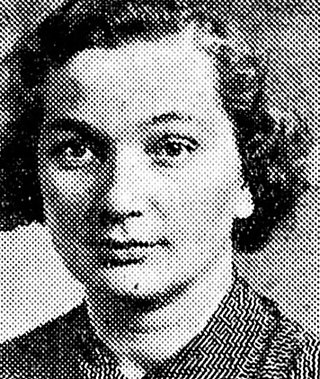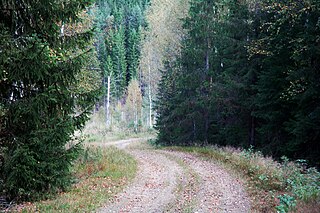
Sonja Henie was a Norwegian figure skater and film star. She was a three-time Olympic champion in women's singles, a ten-time World champion (1927–1936) and a six-time European champion (1931–1936). Henie has won more Olympic and World titles than any other ladies' figure skater. She is one of only two skaters to defend a ladies' singles Olympic title, the other being Katarina Witt, and her six European titles have only been matched by Witt.

The Rwandan genocide, also known as the genocide against the Tutsi, occurred between 7 April and 19 July 1994 during the Rwandan Civil War. During this period of around 100 days, members of the Tutsi minority ethnic group, as well as some moderate Hutu and Twa, were killed by armed Hutu militias. Although the Constitution of Rwanda states that more than 1 million people perished in the genocide, the actual number of fatalities is unclear, and some estimates suggest that the real number killed was likely lower. The most widely accepted scholarly estimates are around 500,000 to 800,000 Tutsi deaths.

Kirsten Malfrid Flagstad was a Norwegian opera singer, who was the outstanding Wagnerian soprano of her era. Her triumphant debut in New York on 2 February 1935 is one of the legends of opera. Giulio Gatti-Casazza, the longstanding General Manager of the Metropolitan Opera said, “I have given America two great gifts — Caruso and Flagstad.”

This is a bibliography for primary sources, books and articles on the personal and general accounts, and the accountabilities, of the 1994 Rwandan genocide.

Deeyah Khan is a Norwegian documentary film director and human rights activist of Punjabi/Pashtun descent. Deeyah is a two-time Emmy Award winner, two time Peabody Award winner, a BAFTA winner and has received the Royal Television Society award for Best Factual Director. She has made seven documentaries to date, all have been shown on ITV in the UK as part of its Exposure series.

Hunger is a novel by the Norwegian author Knut Hamsun published in 1890 by P.G. Philipsens Forlag. The novel has been hailed as the literary opening of the 20th century and an outstanding example of modern, psychology-driven literature. Hunger portrays the irrationality of the human mind in an intriguing and sometimes humorous manner.
The Norway women's national handball team represents Norway at international handball competitions, and is governed by the Norges Håndballforbund (NHF). As of 2023, Norway has been in 25 finals and is regarded as one of the finest women's national handball teams ever, with 32 medals.

Cinema in Norway has a long history, dating back to the beginning of the 20th century, and has an important stance in European cinema, contributing at least 30 feature-length films a year.

Henriette Bie Lorentzen, born Anna Henriette Wegner Haagaas, was a Norwegian journalist, humanist, peace activist, feminist, co-founder of the Nansen Academy, resistance member and concentration camp survivor during World War II, and publisher and editor-in-chief of the women's magazine Kvinnen og Tiden (1945–1955).

The German occupation of Norway began on 9 April 1940. In 1942, there were at least 2,173 Jews in Norway. At least 775 of them were arrested, detained and/or deported. More than half of the Norwegians who died in camps in Germany were Jews. 742 Jews were murdered in the camps and 23 Jews died as a result of extrajudicial execution, murder and suicide during the war, bringing the total of Jewish Norwegian dead to at least 765, comprising 230 complete households.

Carl Fredriksens Transport was the code name for an operation during the occupation of Norway by Nazi Germany to help Jews and other persecuted Norwegians escape persecution, deportation, and murder in death camps.
The Nordic Gender Institute (NIKK) (Norwegian: Nordisk institutt for kunnskap om kjønn), previously Nordic Institute for Women's Studies and Gender Research, was a transnational resource and information centre for gender research and gender equality in the Nordic countries. It was established in 1995 by the Nordic Council of Ministers and closed down in 2011.

Vestre Gravlund is a cemetery in the Frogner borough of Oslo, Norway. It is located next to the Borgen metro station. At 60 acres (0.24 km2), it is the largest cemetery in Norway. It was inaugurated in September 1902 and also contains a crematorium and chapel (Gravkapellet).

Germany–Norway relations are foreign relations between Germany and Norway.

Jacob Benjamin Wegner was a Norwegian business magnate, estate owner and timber merchant.
Duhozanye: A Rwandan Village of Widows is a feature Norwegian documentary film for television from 2011 by director Karoline Frogner.
University of Oslo's Human Rights Award honours individuals who have made important contributions in different fields. The award was launched in 1986 and since then, it is awarded every year to notable people from different walks of life. Those years when the award was not distributed are 1997, 1999, 2003, and 2004.

Børge Petersen-Øverleir is a Norwegian guitarist, raised in Bergen and Bodø, early active in heavy rock, autodidact in jazz centered around in Bodø.
Randi Nilie Nordby Johnson was a Norwegian actress. She was engaged with the Oslo New Theater for many years. As an actress, she used her maiden name as her stage name.












